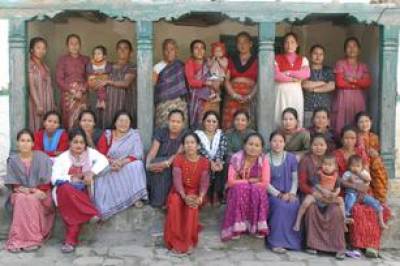Maternal and newborn care practices among disabled women, and their attendance in community groups in rural Makwanpur, Nepal

Project Summary
Our research on maternal and newborn health in Makwanpur has created a large dataset with information on health outcomes of mother and babies, and care behaviours. We have been conducting randomized controlled trials of women's group and health management committee strengthening in the district since 2001 with Nepali research organization, MIRA.
Together with MIRA, we partnered with the Leonard Cheshire Disability and Inclusive Development Centre at University College London, to conduct research on disabled women's maternal health, and access to care.
We used a questionnaire based on the Washington Group tool to screen for type and severity of disability among women who we had been doing research with in Makwanpur since 2001. We located 13687 married women who had participated in our research, and conducted the screening tool with them. We were then able to look at the care behaviours of disabled vs non-disabled women in our sample.
We also conducted a qualitative study with a sample of these women about the factors affecting their care behaviours during pregnancy, delivery and post-partum. We also interviewed nurses about their experiences of providing care to disabled women.
We were also interested to look at disabled women's participation in the women's group intervention that we have been running in the district. We were able to use our dataset to examine to what extend disabled women were attending groups vs non-disabled women. We also conducted a qualitative study to explore what affects disabled women's access to attending and participating in community groups.
The study was granted ethical approval by the Nepal Health Research Council.
 Close
Close

